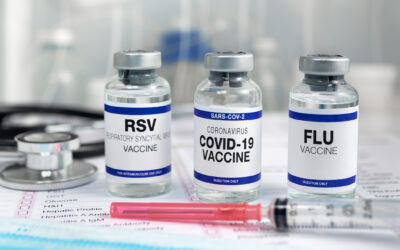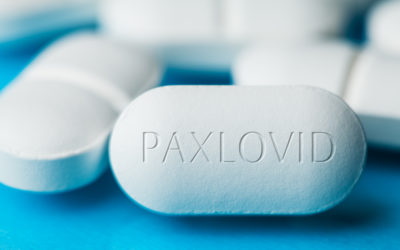It’s hard to believe that the COVID-19 pandemic started over two years ago. Since then, many new SARS-CoV-2 variants have emerged and have been infecting populations across the world. Experts from organizations like the CDC strongly recommend that as many people get vaccinated as possible to prevent the spread of more contagious or deadlier variants over time. In an effort to stay one step ahead, here’s what you need to know about SARS-CoV-2 variants and testing for these new COVID-19 variants.
What is a SARS-CoV-2 variant?
SARS-CoV-2 is the name for the virus that causes a COVID-19 infection. This virus is constantly undergoing mutations as it spreads from person to person. These mutations are what eventually cause new variants to emerge like the Delta and Omicron variants we have seen.
How Do These Mutations Occur?
You may have heard of the “spike protein” that is a notable trait of coronaviruses like SARS-CoV-2. The spike protein is how the virus attaches to and infects host cells. When there are changes or mutations in the spike protein, it can affect how contagious or severe the virus becomes. Furthermore, changes in spike protein structure can help it evade the body’s immune response like the protective antibodies induced by vaccination or previous infection.
How Do COVID-19 Variants Respond to Testing?
It has been shown that some COVID-19 variants have evaded detection via rapid point-of-care testing and self-testing. Luckily, no mutation has avoided the accuracy of polymerase chain reaction (PCR) testing that detects active COVID-19 infection. This is because PCR testing detects the nucleocapsid protein of the virus which is far less likely to mutate than the spike protein. For example, the Omicron variant is highly mutated in its spike protein, however a PCR test can still detect an active Omicron infection. Current known COVID-19 variants are listed below.
- Alpha (B.1.1.7, Q.1-Q.8)
- Beta (B.1.351, B.1.351.2, B.1.351.3)
- Delta (B.1.617.2)
- Epsilon (B.1.427, B.1.429)
- Eta (B.1.525)
- Gamma (P.1, P.1.1, P.1.2)
- Iota (B.1.526)
- Kappa (B.1.617.1)
- Lambda (C.37)
- Mu (B.1.621)
- Zeta (P.2)
- Omicron (B.1.1.529, BA.2)
Testing Specifically for New COVID-19 Variants:
Organizations and companies in the United States like the CDC and LabCorp are working together on continuous genomic sequencing of the SARS-CoV-2 virus to accurately depict how new variants are emerging and spreading. The Federal government is also stepping in to accelerate this process by providing funding to support genomic sequencing and surveillance initiatives. Efforts such as these will arm public health officials with information to aid in ending the pandemic.
Continuing to Support COVID-19 Efforts
At Digital Pharmacist, have strived to make COVID-19 information readily available and offer services that help pharmacies manage COVID-19 testing and vaccinations . Our digital patient engagement and communication solutions and customized vaccination features have served thousands of pharmacies and thousands of patients during COVID-19.
References:
https://www.labcorp.com/coronavirus-disease-covid-19/covid-news-education/guide-covid-19-variants-what-you-need-know-about
Photo 193158596 © Michal Bednarek | Dreamstime.com


